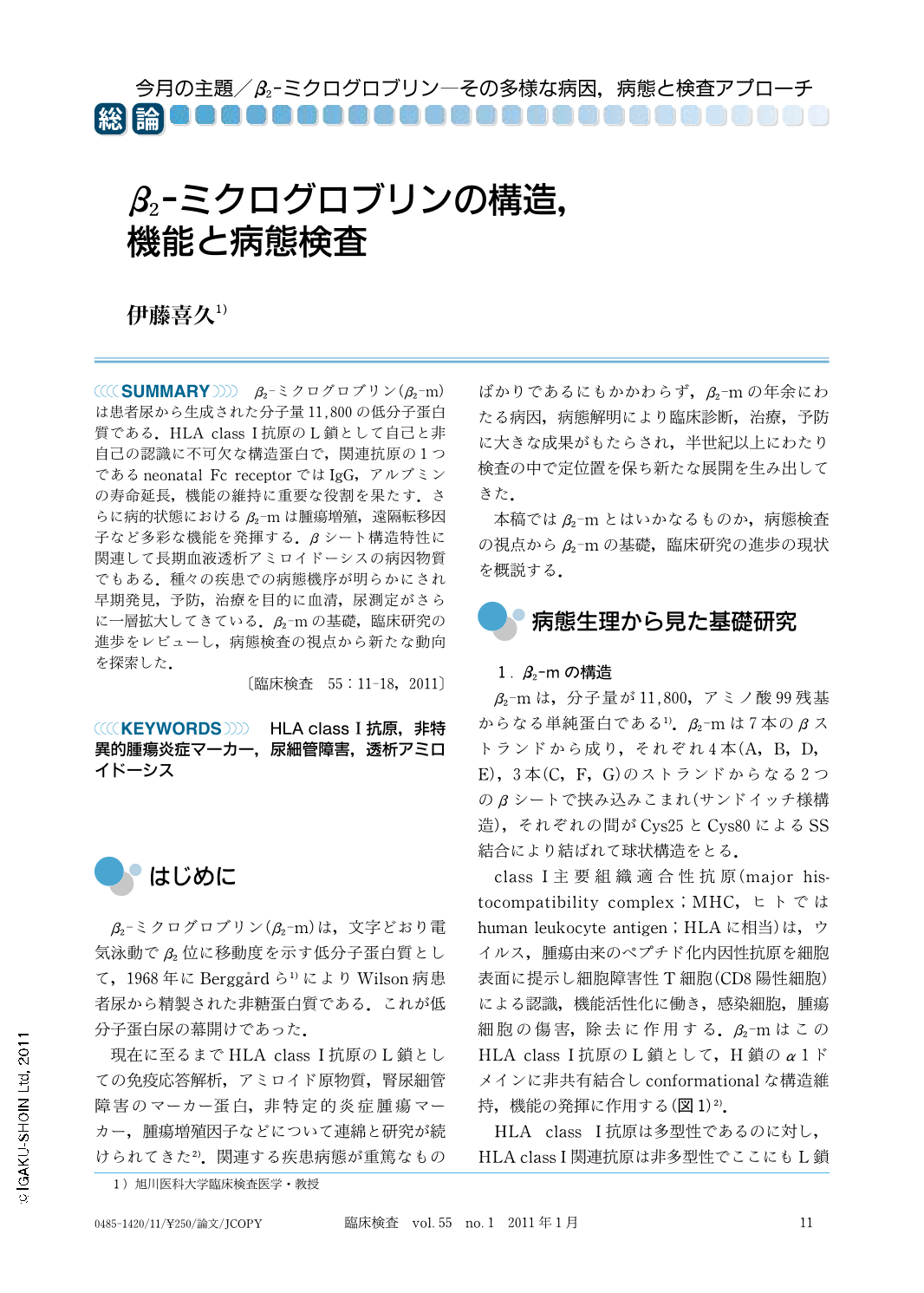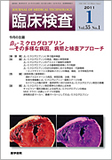Japanese
English
- 有料閲覧
- Abstract 文献概要
- 1ページ目 Look Inside
- 参考文献 Reference
β2-ミクログロブリン(β2-m)は患者尿から生成された分子量11,800の低分子蛋白質である.HLA class Ⅰ抗原のL鎖として自己と非自己の認識に不可欠な構造蛋白で,関連抗原の1つであるneonatal Fc receptorではIgG,アルブミンの寿命延長,機能の維持に重要な役割を果たす.さらに病的状態におけるβ2-mは腫瘍増殖,遠隔転移因子など多彩な機能を発揮する.βシート構造特性に関連して長期血液透析アミロイドーシスの病因物質でもある.種々の疾患での病態機序が明らかにされ早期発見,予防,治療を目的に血清,尿測定がさらに一層拡大してきている.β2-mの基礎,臨床研究の進歩をレビューし,病態検査の視点から新たな動向を探索した.
β2-microglobulin (β2-m) has a low molecular weight of 11,800 and was initially isolated from the urine of patients with renal tubular disorders. It is a light chain of HLA class Ⅰ antigen, playing an important role as a structural protein for immune recognition of self and non-self. It is also a light chain of neonatal Fc receptor, one of HLA class Ⅰ associated antigens, functioning by keeping turnover time and function of albumin and IgG by preventing digestion from lysosomal enzymes in the body. Many different functions in clinical relevance have been elucidated, such as those which are involved in tumor proliferation, metastatic factor, apoptosis, amyloidgenic protein in long-term hemodialysis, and others. With further clarification of the pathophysiologic roles of the protein, its clinical usefulness has been expanded as a serum nonspecific marker for inflammation and malignancy, a prognostic indicator for myeloma and a urine marker for renal tubular function. Use of purified β2-m and anti- β2-m antibodies is are being focused to control and treat associated diseases. Recent progress in fundamental and clinical aspects of the protein is here reviewed from the viewpoint of laboratory medicine.

Copyright © 2011, Igaku-Shoin Ltd. All rights reserved.


